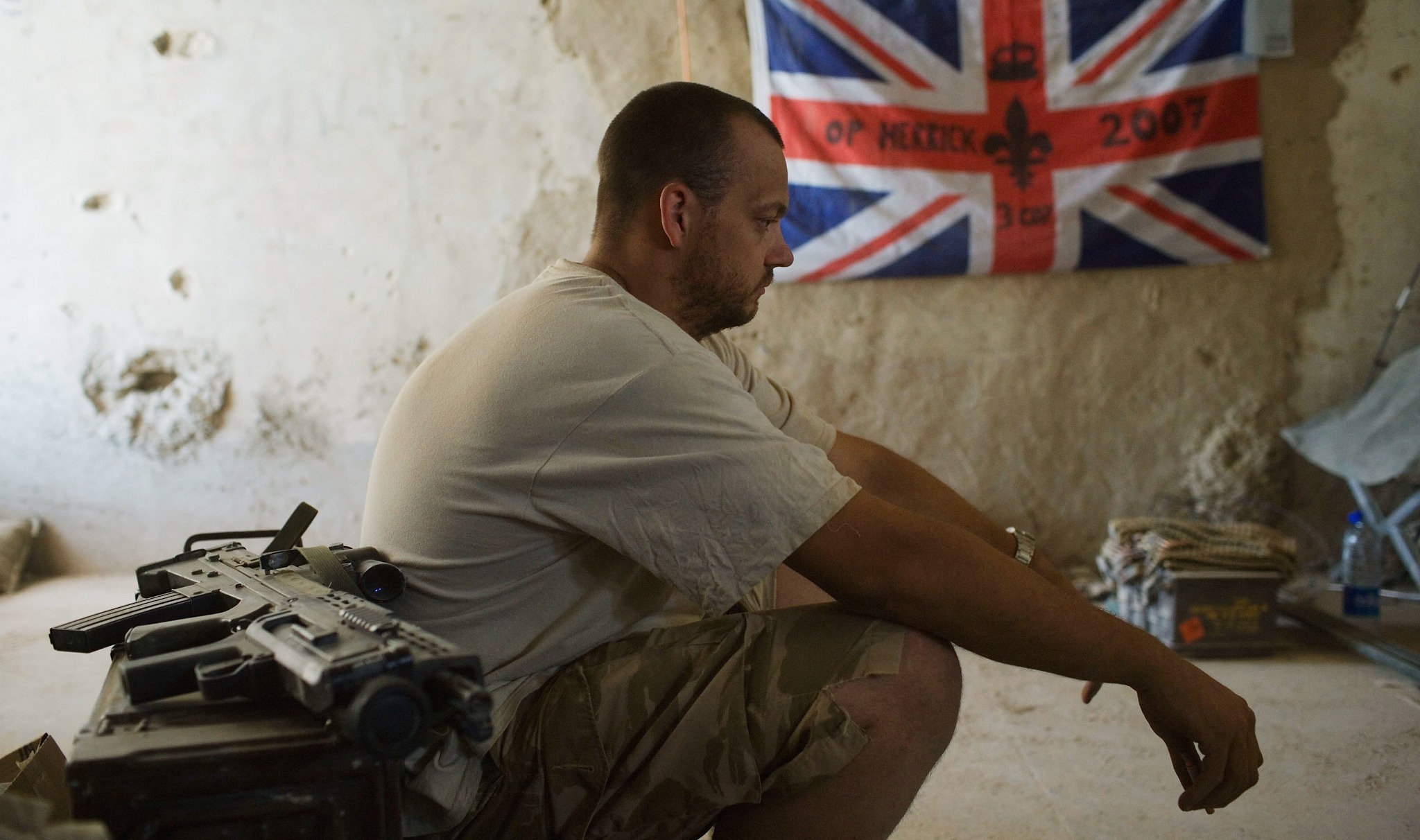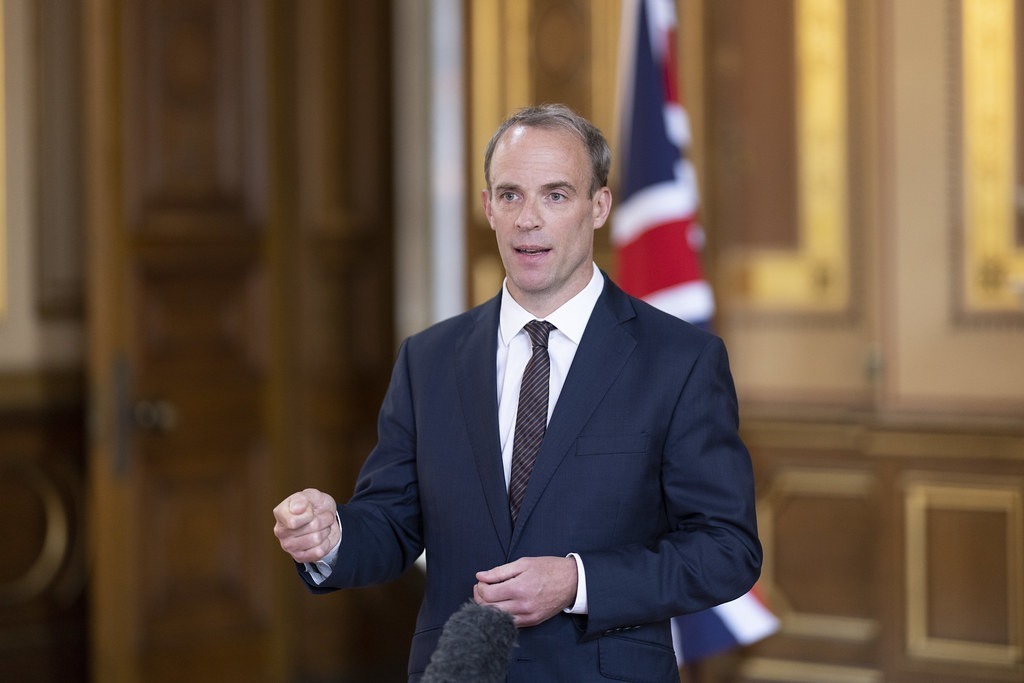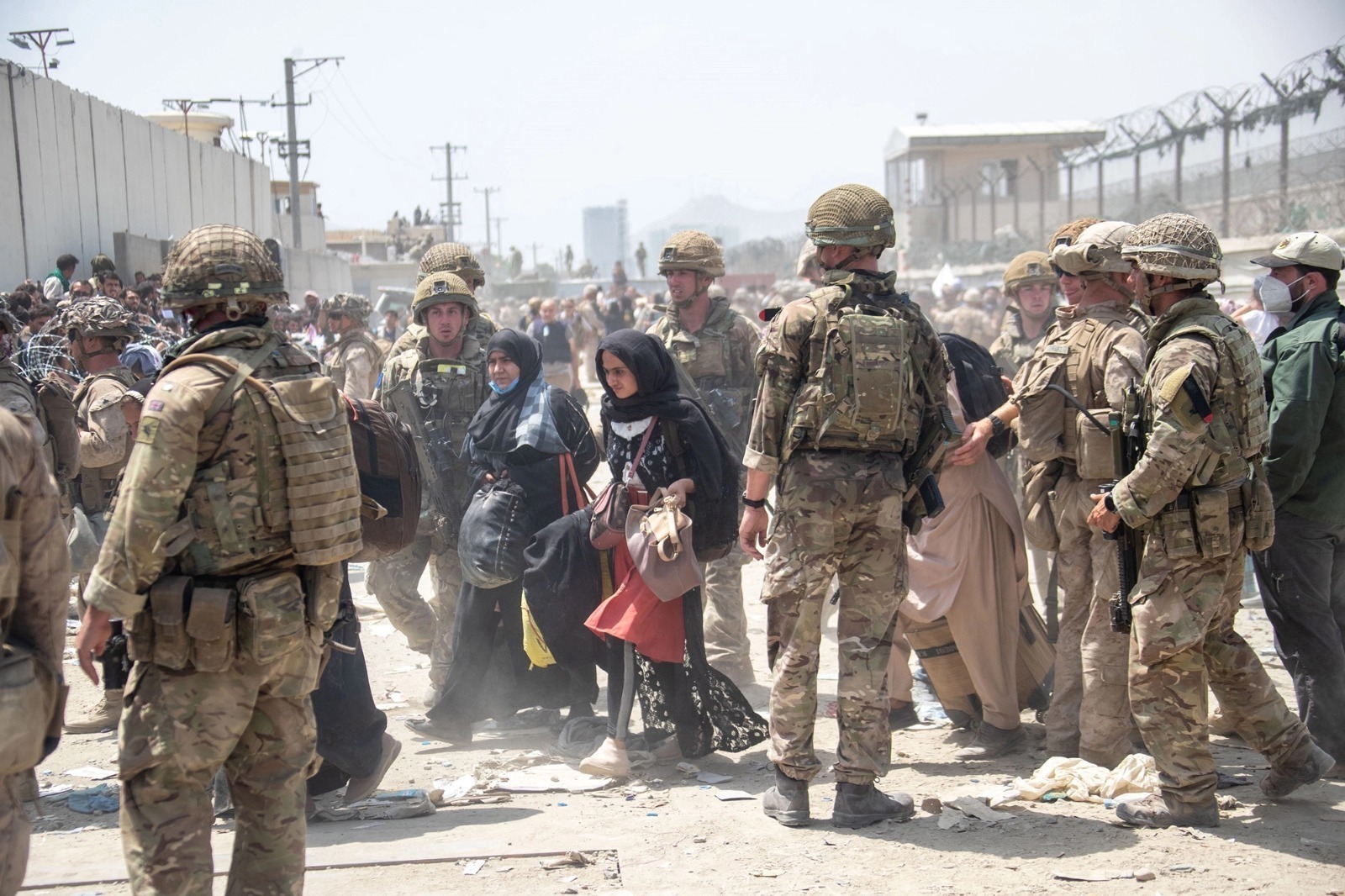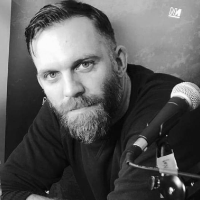“I last used a food bank last week”, former Fusilier Craig told Declassified.
In 2004, Craig deployed on one of the last kinetic tours of the North of Ireland before drawdown. As a young soldier he says he was sent out to keep Republican and Loyalist communities apart during the Belfast marching season.
Some of his post-traumatic stress comes from “being firebombed on that tour”. He later deployed to Iraq and Afghanistan and now has Complex Post-Traumatic Stress Disorder (CPTSD) from the wars and from his upbringing.
Growing up in Manchester, he spent time in foster care and became involved in petty crime. He also cared for his alcoholic father.
Craig eventually found himself in an army recruiting office. It was his only way out and, ultimately, he excelled in training. But he recalls how, years later at his base in Cyprus, the army welfare officer rejected his mental health issues.
The welfare officer, a former regimental sergeant major, ignored his tears and told him to just “soldier on”.
He struggled to adapt to civilian life after leaving.
“They say it’s a family, that they look after each other, but not me”
“It was drinking, drugs, I couldn’t maintain a relationship, I couldn’t keep a job. I got no support from the army. They binned me. They just gave me my papers. No welfare or anything like that”.
“I was homeless until I moved in with my sister. Before that I lived on friends’ sofas”.
Craig has since moved from hostels to various flats, but they have always been short term. He currently lives in a flat he got through veteran’s provision. But he says he can only be there for a maximum of two years.
“I survive by scrimping. There’s nothing in my fridge,” he said. “At times, I can’t seem to function. I stay on my own for long periods, still drinking. I feel like if I’d just had a bit of help, a bit of help with housing, it would have been better.”
For Craig, the military did not keep up its end of the bargain.
“They say it’s a family, that they look after each other, but not me. There was no touching base [after discharge], nothing like that. I served four tours. I served my country. I used to be really bitter about that. But I’m less bitter now.”
He added: “They say they’re giving you the world. I do feel let down. A lot of the lads I was in training with drink a lot, they have problems”.
‘Personal decisions’
In the wake of the wars in Afghanistan and Iraq, the condition of military personnel and veterans has become a touchstone issue in the US and UK. Ex-forces charities have proliferated in addition to long-standing organisations like the Royal British Legion.
A government veterans office was even founded to attend to the needs of the UK’s estimated 1.8m former service personnel. It has seemed at times that the needs of former and current personnel have been given a privileged profile in the press, in parliamentary debate and in election manifestos.
Many were surprised when in July 2023, the head of the Office of Veterans Affairs, Johnny Mercer, scathingly rejected reports suggesting military personnel were using food banks. The former army officer-turned-Tory MP told reporters that food bank use by serving personnel was a matter of choice, not necessity.
“These are personal decisions around how people are budgeting every month. I don’t want to see anyone using food banks, of course I don’t. But we’re in an extremely difficult time, around the cost of living”, he said.
Mercer additionally claimed that using food banks was not a good metric for assessing poverty:
“I don’t think food bank use is an accurate portrayal of where levels of poverty – relative or absolute – poverty are in this country. I don’t want to see anybody using food banks, but I think that being in the military still affords you a good wage and a good quality of life. And that will continue to be the case.”
The issue of former service personnel being forced to use food banks had already surfaced in 2021. And it continues to present itself.
The best place to be a veteran?
In a 2019 speech Johnny Mercer outlined his determination to turn the UK into “the best country in the world to be a veteran”. He outlined a range of programmes which would support the ex-military community. This included Op Courage, to increase NHS access, and Op Fortitude, to address homelessness among veterans.
The government also released a fact sheet in 2020 outlining the number of veterans in employment, in housing and in the justice system. These interventions generally paint – and may be intended to paint – a positive image of veterans’ lives in the UK.
But they don’t capture the whole picture and skip over many of the nuances of ex-military experience.
For example, Britain’s very young recruits suffer acutely because of their military service. The UK is the only NATO member and only European country which recruits minors to the military.
Although they cannot deploy on operations until they are 18, their immersion in military training and culture has long term effects.
Mental health
Extensive research by the monitoring organisation Forces Watch found that “young soldiers recruited from disadvantaged backgrounds are substantially more likely than other troops to return from war experiencing problems with their mental health”.
And a separate report by Forces Watch found that training processes combine with pre-existing issues “to increase the risk of violence and alcohol misuse. Traumatic war experiences further exacerbate the problem.”
It follows that these experiences put veterans who joined very young at greater risk of experiencing issues like poverty after they’ve left the military.
Dan, a former Royal Artillery soldier in his mid-30s, struggled for years with precarious housing and mental health issues. Recruited in the south-west of England at 18 from a troubled working-class background, Dan got PTSD in Iraq in 2007.
It took him over seven years to get compensation for his injuries from the Armed Forces Compensation Scheme, in a process he said was designed to frustrate and put off potential applicants.
During this period, he lacked support. Like many veterans he self-medicated with drink and drugs while living in precarious housing and being “handed around” various military charities.
He described the frustration of dealing with charity bureaucracy while mentally ill: “I was sent from pillar to post, there were endless forms and I spoke to over a hundred different people. These charities love to fly the flag and campaign surf.”
Arms firm-military charity complex
Dan described the proliferation of military charities as part of a “charity complex” and said the organisations were “complicit in the decline of veterans”.
When he was eventually awarded his full pension, the judge at the final hearing said Dan’s treatment had been “disgusting”. Yet Dan was only given his pension backdated to 2016, despite enlisting in the 2000s.
He said fatigue with the process has stopped him pursuing his case further and that without his partner’s support he would never have been able to get this far. He hopes for “a more sympathetic government in the future”.
“We almost gave up several times. I wanted to die throughout”
“There were lots of hurdles in the system,” he said, “and it feels like they’ll revoke a claim for the smallest thing. We almost gave up several times. I wanted to die throughout”.
Dan added there wasn’t a “ripple” of urgency until he lodged a formal complaint. And that ultimately the charities and the government are mainly worried about public relations.
“They care about optics, statistics, generating wealth [for the charities], they just love pulling at the heartstrings of the country.”
Dan said it was absurd that so many arms firms were involved with military charities. He recalled his time as a resident on a Combat Stress course.
He told Declassified that “BAE Systems employees were brought in one day” as part of a scheme to paint a fence at the facility – a facility full of veterans like Dan, wounded in wars the same firms had directly profited from.
PTSD
One thing Dan didn’t struggle to get was his Personal Independence Payment (PIP). But one veterans’ charity claimed that up to 90% of former military personnel were rejected for PIP for service-related injuries including PTSD.
Larry Holmes, a former Royal Marine and veteran support officer for Help for Heroes, one of the new guard of military charities, told the Mirror newspaper in 2021: “Virtually every veteran with PTSD has issues being awarded PIP – I’d say 90% of them.”
In one example cited by the Mirror, a wounded Northern Ireland veteran who had been paid PIP for two decades had it withdrawn following spurious walking and communication tests carried out by assessors at the Department for Work & Pensions (DWP).
He reportedly later tried to take his own life. Sanctions can exacerbate already difficult situations veterans may find themselves in.
‘There was no support’
James served in the army reserves. After mental health issues and a relationship breakdown he became homeless in 2016. He lived in a hostel in Cambridge for a time, before moving back to his native London.
He was sanctioned by the DWP at one point and struggled to get support from the military, but eventually got a place at east London’s Veterans’ Aid hostel. He lived there for two years before getting a flat.
“The British Legion like to talk the talk, but they don’t walk the walk”
“In 2016 the support, or lack of support, was startling. There was no support. The British Legion like to talk the talk, but they don’t walk the walk. They were useless.”
He felt “lucky” that Veterans Aid helped him. “They’re a small military charity that don’t bask in the [military] glory”.
The ironies of his predicament and location were not lost on James:
“But it was strange to be in east London, between the City of London and Canary Wharf. With all that power and money sloshing about, forgotten and rejected by the system”.
“Nowadays I don’t want to feel bitter. Some of it was my choices, some of it was the system. This is one of the richest countries in the world. Theoretically, the military covenant is supposed to help us if we risk our lives.
“And I just don’t know if that’s true”, he added.





